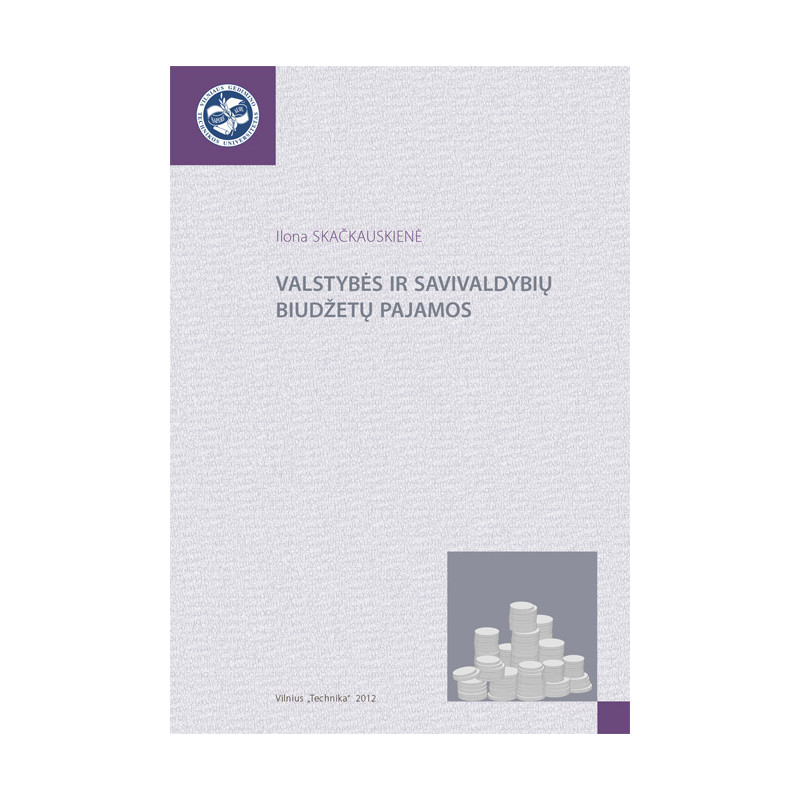
Reference: 32430
Darnaus vystymosi atskaitomybė. Įmonių darnios veiklos anatomija ir rezultatų vertinimas
Indrė Lapinskaitė Textbook


Ilona Skačkauskienė
Study book (in Lithuanian)
Data sheet
Reference: 32430
Indrė Lapinskaitė Textbook
Reference: 918551
Valentina Peleckienė Study book (in Lithuanian)
Reference: 916797
Vida Davidavičienė, Rimantas Gatautis, Narimantas Paliulis, Rimantas Petrauskas Textbook (in Lithuanian)
Reference: 914317
Mindaugas Mazūra Study book (in Lithuanian)
Reference: 32132
Rūta Banelienė, Rolandas Strazdas, Audrius Dzikevičius, Augustinas Maceika, Renata Mizgaitienė, Eligijus Toločka Textbook
Reference: 32190
Raimonda Martinkutė-Kaulienė, Viktorija Stasytytė Textbook (in Lithuanian)
Reference: 916858
Egidijus Rytas Vaidogas Textbook
Reference: 914419
Augustinas Maceika
Reference: 31843
Rūta Banelienė, Rolandas Strazdas, Audrius Dzikevičius, Augustinas Maceika, Rasa Paulienė, Eligijus Toločka Textbook (in Lithuanian)
Reference: 916845
Algirdas Griškevičius Study book (in Lithuanian)
Reference: 918435
Borisas Melnikas Textbook (in Lithuanian)
Reference: 31074
Jurgita Raudeliūnienė Textbook (in Lithuanian)
Reference: 915985
Liudmila Nickelson, Steponas Ašmontas, Vacius Mališauskas, Viktoras Šugurovas Monograph
Reference: 31178
Antanas Sakalauskas Study book (in Lithuanian)
Reference: 918087
Vytautas Jaržemskis, Gražvydas Jakubauskas, Alminas Mačiulis Study book (in Lithuanian)
Reference: 917981
Julija Moskvina, Laima Okunevičiutė Neverauskienė Monograph (in Lithuanian)

Ilona Skačkauskienė
Study book (in Lithuanian)
The book demonstrates the theory of the budget revenue formation by linking it with various state‘s practices. The analysis of the budget revenue formation begins with general aspects of budget formation: legal regulation, principles, methods, structure. Following that budget‘s formation stages are examined consistently. Thus, preconditions are created to analyze theoretical and methodological aspects of the part of budget‘s revenue in depth. The focal point is the analysis of the taxes which is the most important source of revenue. The principles of building tax systems, peculiarities and problematic aspects of tax systems in some countries are discussed.
The book is intended for the students of higher education and it is recommended to lecturers and everybody who is interested in the issues of the state resource management.
Electronic version of the book:
DOI: https://doi.org/10.3846/1282-S